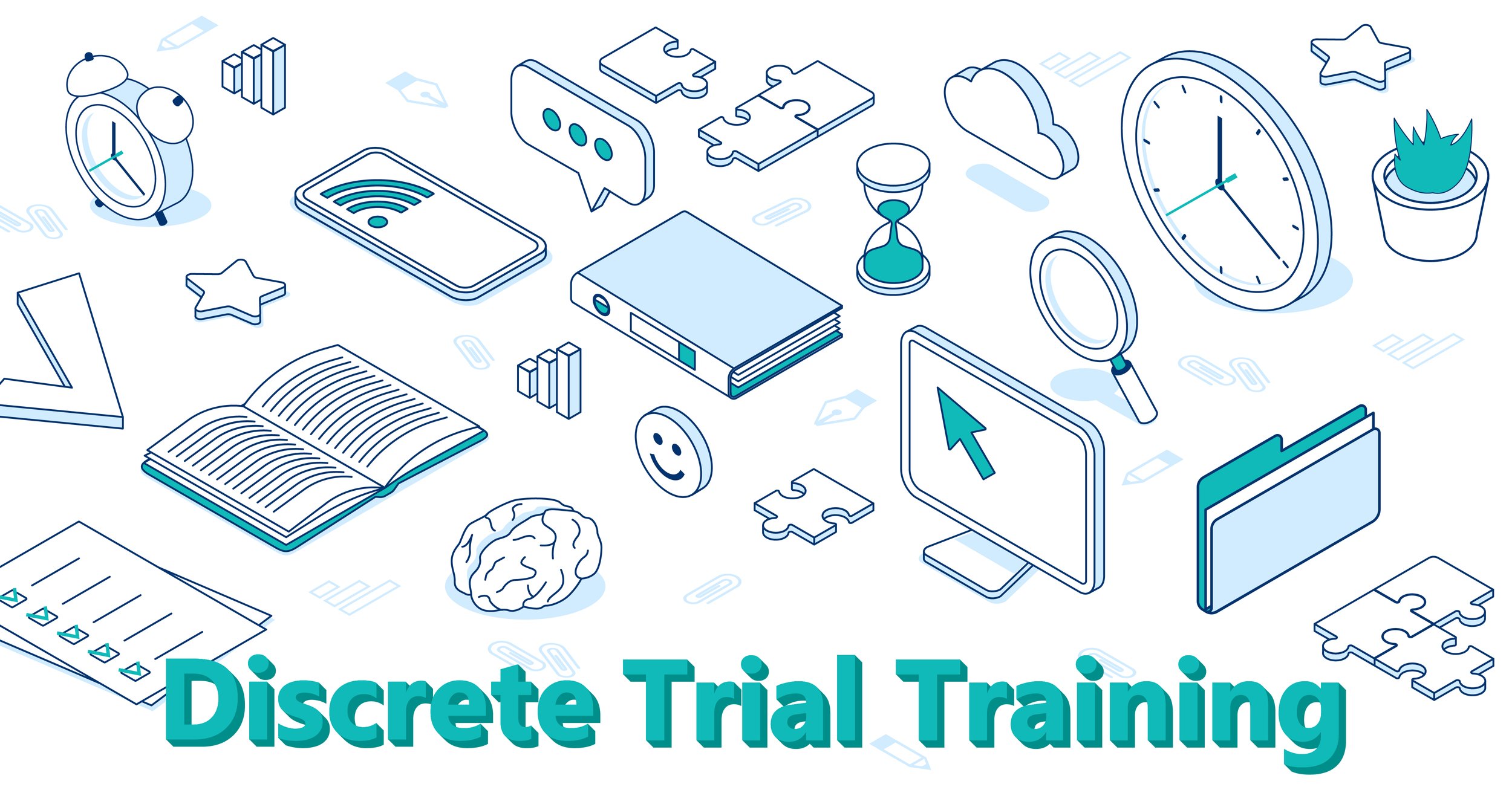Discrete Trial Training

Overview of Discrete Trial Training
Discrete trial training (DTT) is a one-to-one instructional approach used to teach skills in
a planned, controlled, and systematic manner. DTT is used when a learner needs to
learn a skill best taught in small repeated steps. Each trial or teaching opportunity has a
definite beginning and end, thus the descriptor discrete trial. Within DTT, the use of
antecedents and consequences is carefully planned and implemented. Positive praise
and/or tangible rewards are used to reinforce desired skills or behaviors. Data collection
is an important part of DTT and supports decision making by providing
teachers/practitioners with information about beginning skill level, progress and
challenges, skill acquisition and maintenance, and generalization of learned skills or
behaviors.
Evidence
DTT meets the evidence-based practice criteria within the early childhood and
elementary age groups for promoting the development of communication/language,
adaptive behavior, cognitive/academic skills, social and play skills, and for reducing
interfering behaviors.
With what ages is DTT effective?
DTT can be used to teach students from early childhood through elementary school at
all ability levels. Due to the intensive and repetitive nature of DTT, there is more
evidence for using DTT with younger children (i.e., 2 to 9 years of age).
What skills or intervention goals can be addressed by DTT?
DTT has been shown to have positive effects on children’s academic, cognitive,
communication/language, social, and behavioral skills. DTT can also be used to teach
attending, imitation, and symbolic play skills.


Helpful Links for More Information: